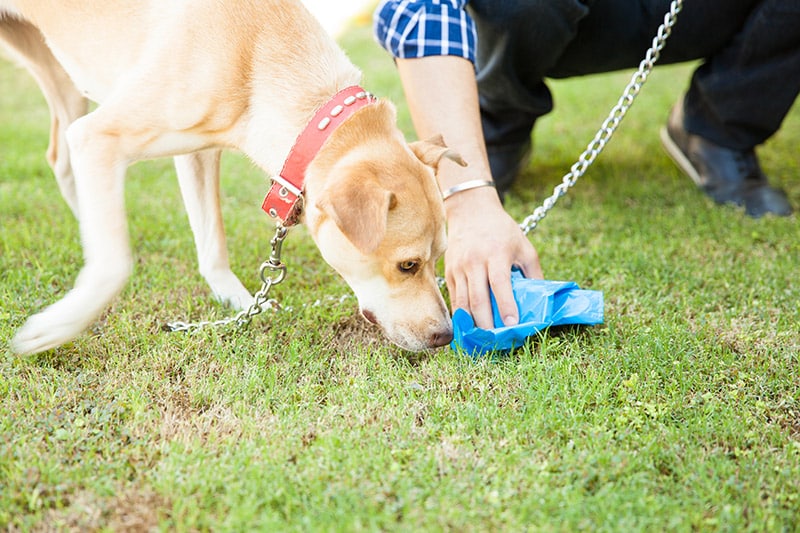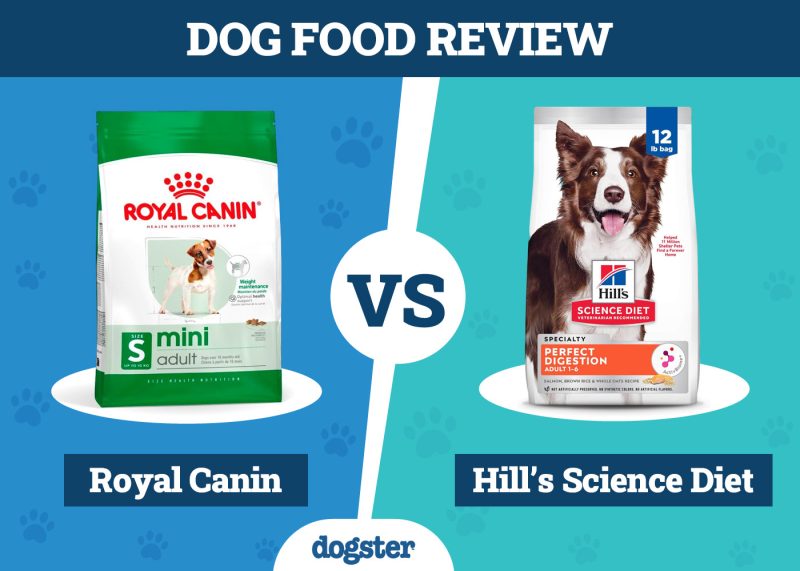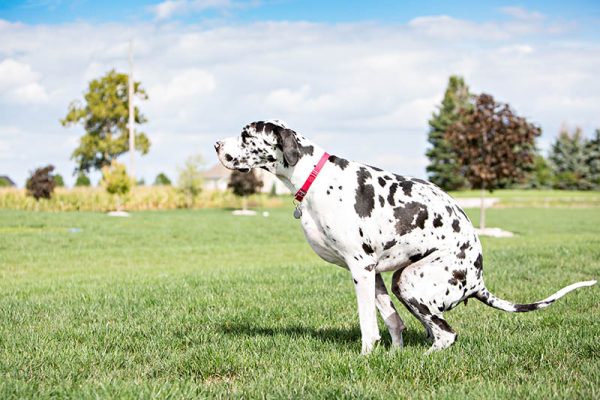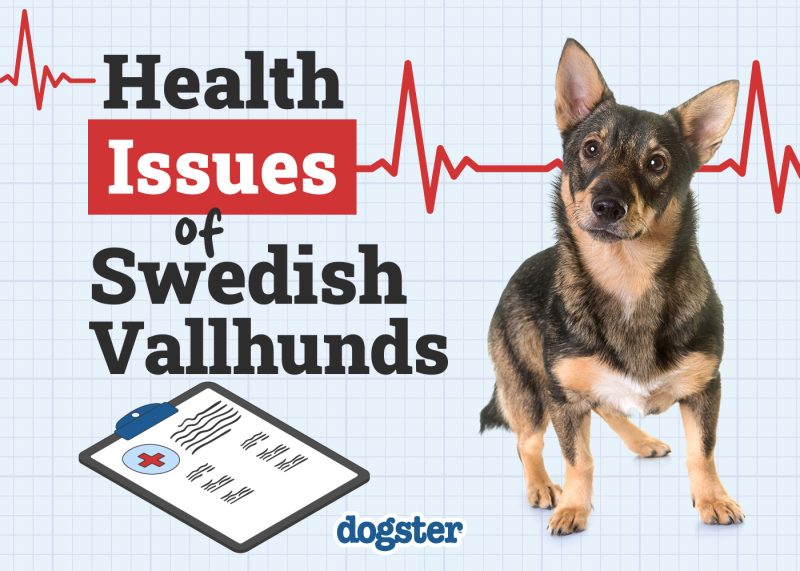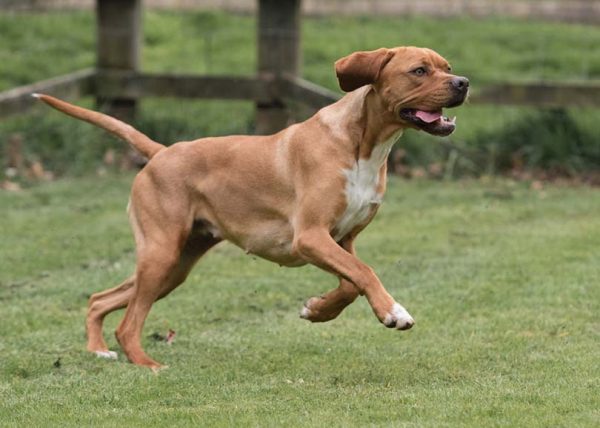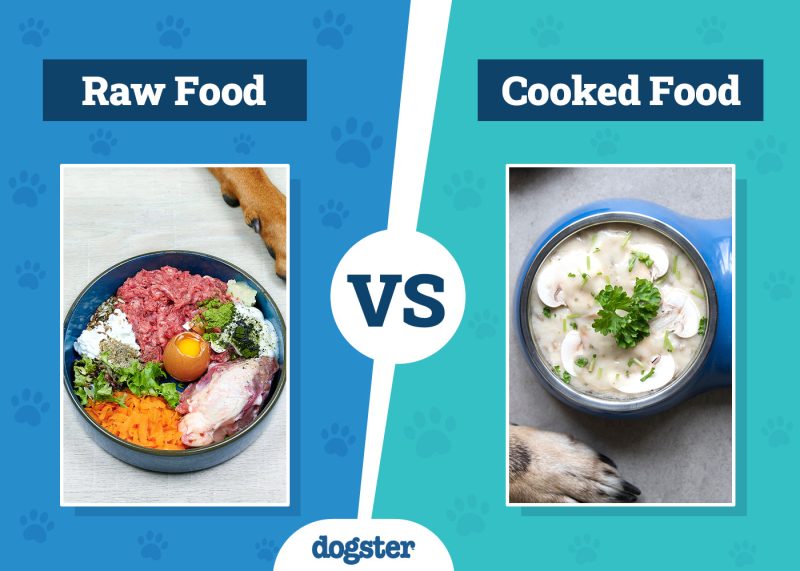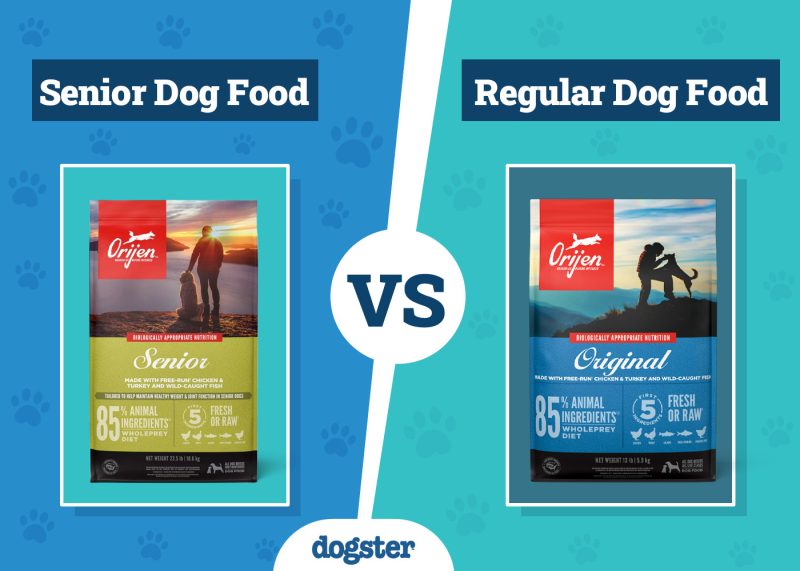In this article
View 5 More +Have you noticed your dog’s poop has suddenly turned yellow? Are you wondering if you need to be worried or not? This vet-written guide will give you all the information you need on yellow poops and when to panic.
Dog poop can give owners some useful insight into how their dog’s body is functioning and what they have been eating. If you see your dog passing yellow stools, this could mean they have eaten something harmless such as yellow crayons. It can also mean something more serious such as liver or pancreas disease. If your dog is passing yellow stools, it is always best to get them checked out by your veterinarian; after all, it’s always better to be safe than sorry.
If you need to speak with a vet but can't get to one, head over to PangoVet. It's our online service where you can talk to a vet online and get the advice you need for your pet — all at an affordable price!


What Is Yellow Dog Poop?
If your dog is passing yellow-colored poop (as opposed to having bits of yellow in their poop), this can mean there is bile pigment present. Bile pigment should normally be reabsorbed. If the bile stays in the stools, it discolors the poop. This is usually an indication that the transit time of the contents of the gastrointestinal tract is being increased.
The gastrointestinal transit time is the amount of time it takes for the food your dog has eaten to travel through the stomach and all of the intestines until it is passed out as waste. The intestines are continuously absorbing and reabsorbing things according to the body’s requirements. If the transit time is faster than usual, diarrhea is produced, and often it is yellow due to the presence of bile pigments. If the transit time is longer than usual, the dog is likely constipated.
The gastrointestinal transit time can become longer for various reasons. These include inflammatory disorders of the bowels, parasites, cancer, liver disease, pancreatitis, and issues with the gallbladder. This is why it is so important to speak to your vet if your dog’s poop turns yellow, as something serious could be wrong with your dog.
Did you know that you can speak with a real vet online about your dog’s health?
If you need to speak with a vet but can't get to one, head over to PangoVet. It's an online service where you can talk to a vet online and get the personalized advice you need for your pet — all at an affordable price!

What Are the Signs of Yellow Dog Poop?
Usually, it is pretty easy to spot if your dog is passing yellow stools. You will be able to see clearly when you pick up after your dog that the poop has changed from dark brown to yellow.
If you notice that your dog has small pieces of yellow in their poop, or if they have random patches of yellow poop, this may be because they have eaten something with yellow pigment, such as chalk or a crayon.

What Are the Causes of Yellow Dog Poop?
A lot of the time, the presence of yellow stools is caused by a change in your dog’s diet, or dietary indiscretion, which is when your dog decides to eat something they shouldn’t! Dogs can get hold of crayons or chalk, and these will pass through their body and color their feces yellow (or any color of the rainbow depending on what they have eaten).
Dogs can also have food intolerances which means they have an adverse reaction to certain food types. This can cause their poop to turn yellow.
1. Infections
If your dog has an infection, this can cause them to pass yellow stools. Both viral and bacterial infections can affect your dog’s stools. Usually, your dog will show clinical signs of being unwell. They may have a fever and go off their food. The yellow stools may also contain some blood.

2. Liver Disease
Any disease affecting the liver or gallbladder can cause pale yellow stools. This is because the body is unable to excrete bile as effectively. Other clinical signs of illness such as reduction in appetite, abdominal pain, vomiting, and weight loss are usually seen.
3. Parasites
Certain worms such as hookworms, roundworms, and tapeworms, as well as protozoa parasites like giardia, can cause looser, yellow stools.
4. Inflammatory Bowel Disease or Irritable Bowel Syndrome
If you are frequently seeing bouts of loose yellow stools, your dog may have irritable bowel syndrome. Factors such as environmental stressors or a change in diet can cause episodes of yellow stools in these cases.
Inflammatory bowel disease is different from irritable bowel syndrome. It is a syndrome caused by the body reacting to chronic irritation in the intestinal tract. It usually results in chronic diarrhea that is often yellow in color.
For both of these conditions, dogs may also appear to be in pain, and they may lose their appetite and vomit as well. Some dogs become very bloated.
Limited-ingredient diets may help alleviate the symptoms of IBD and IBS. However, you should consult a vet before making any dietary changes for your dog.
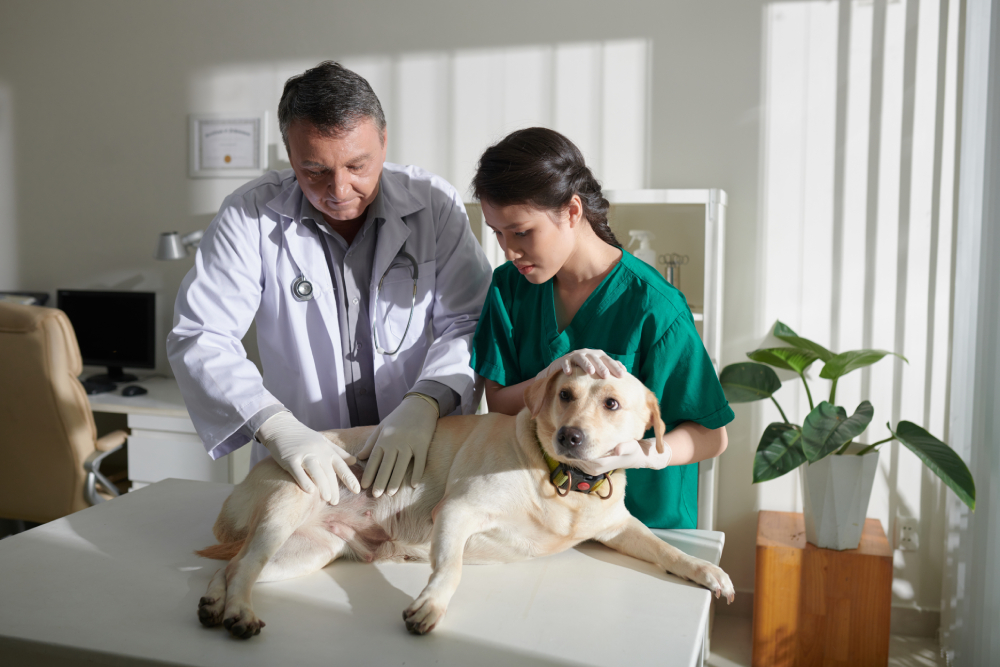
5. Pancreatitis
This occurs when the pancreas becomes inflamed due to the leaking of digestive enzymes into pancreatic tissues. This can be a very painful condition and your dog may be vomiting as well as having yellow stools.
6. Gallbladder Disease
These issues arise when there is a problem with the flow of bile from the gallbladder to the intestines. Typical causes can include injury, gallstones, or tumors. Dogs can produce bright yellow stools with pancreatitis.

Diagnosis of Yellow Poop Issues in Dogs
Your vet will perform a full clinical exam on your dog and take a detailed history from you. They will need to know if your dog has recently eaten anything they shouldn’t have, or if there have been any recent changes in their diet.
One of the most useful diagnostic tests is taking a sample of feces and sending it off to a lab to be examined. Your vet may also take blood and urine samples for testing to assess organ function and red and white blood cell counts amongst other things. Your vet may also decide to perform X-rays and ultrasound scans depending on what they suspect to be the underlying cause of the yellow stools.
- You may be interested in: How Much Does a Dog X-Ray Cost? Price Guide
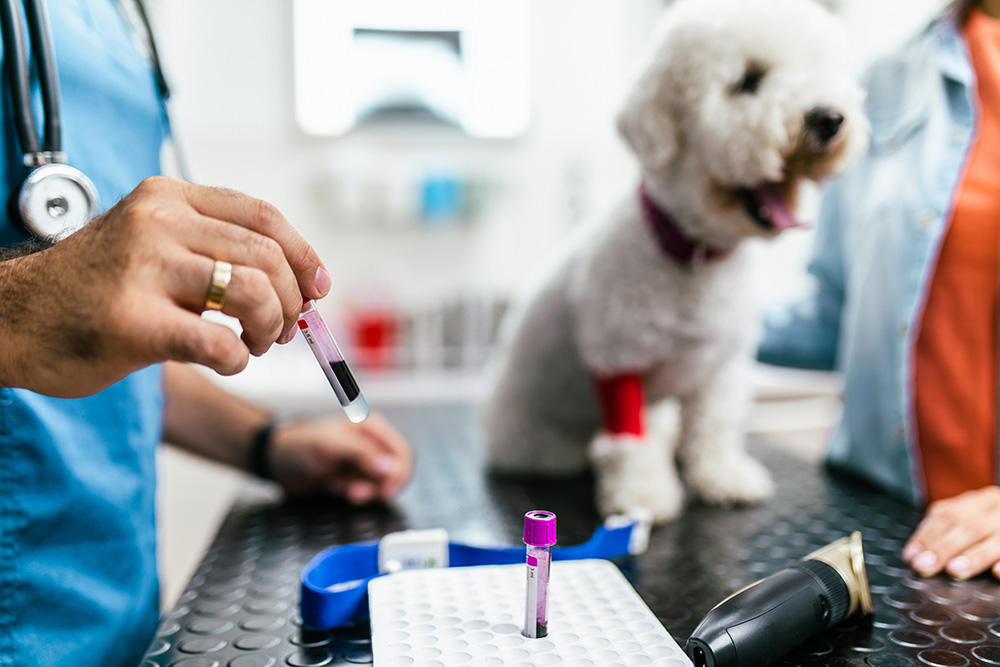
How Do I Care for a Dog with Yellow Poop?
Treatment of yellow stools largely depends on what the underlying cause is. If you know that your dog likes to scavenge or eat things that they shouldn’t, you need to keep a close eye on them, especially when they are out on walks and in new places. Some owners resort to using a muzzle to stop dogs from picking things up on walks.
If an infection is present, antibiotics may be indicated. If parasites are present, your vet will recommend the appropriate anti-parasite treatment. If liver disease is present, again, treatment is dictated by the underlying cause. Management options may include intravenous fluid therapy, antibiotics, diet changes, and treatment of any neurological complications that may arise.
Inflammatory bowel disease can be managed with dietary changes. This depends on which part of the bowel is affected. Medications such as steroids are indicated in some cases. Some dogs benefit from supplementation with vitamin B12 injections as they are unable to absorb this vitamin. Management of potential stressors and increasing fiber in your dog’s diet can help with irritable bowel syndrome.
Pancreatitis is usually treated with pain relief, intravenous fluid therapy, and anti-inflammatory drugs. Gallbladder disease can be treated with anti-inflammatory drugs, antibiotics, surgery to remove stones, or even surgical removal of the gallbladder in extreme cases.

If you need to speak with a vet but can’t get to one, head over to PangoVet. It’s our online service where you can talk to a vet online and get the personalized advice you need for your pet — all at an affordable price!
Frequently Asked Questions (FAQ)
How long can my dog have yellow poop for?
Depending on whether the disease has come on suddenly, or is a chronic condition, dogs may pass yellow poop on a single occasion, or for weeks on end.
What color dog poop is a cause for concern?
In a nutshell, any color of dog poop that is not the usual dark brown can be a cause for concern. The main colors to worry about are black, red, orange, yellow, and green. Blood in poop can be bright red if fresh, or dark if it has been partially digested. If there is any change in the color of your dog’s poop it is always best to get it checked out by your vet.
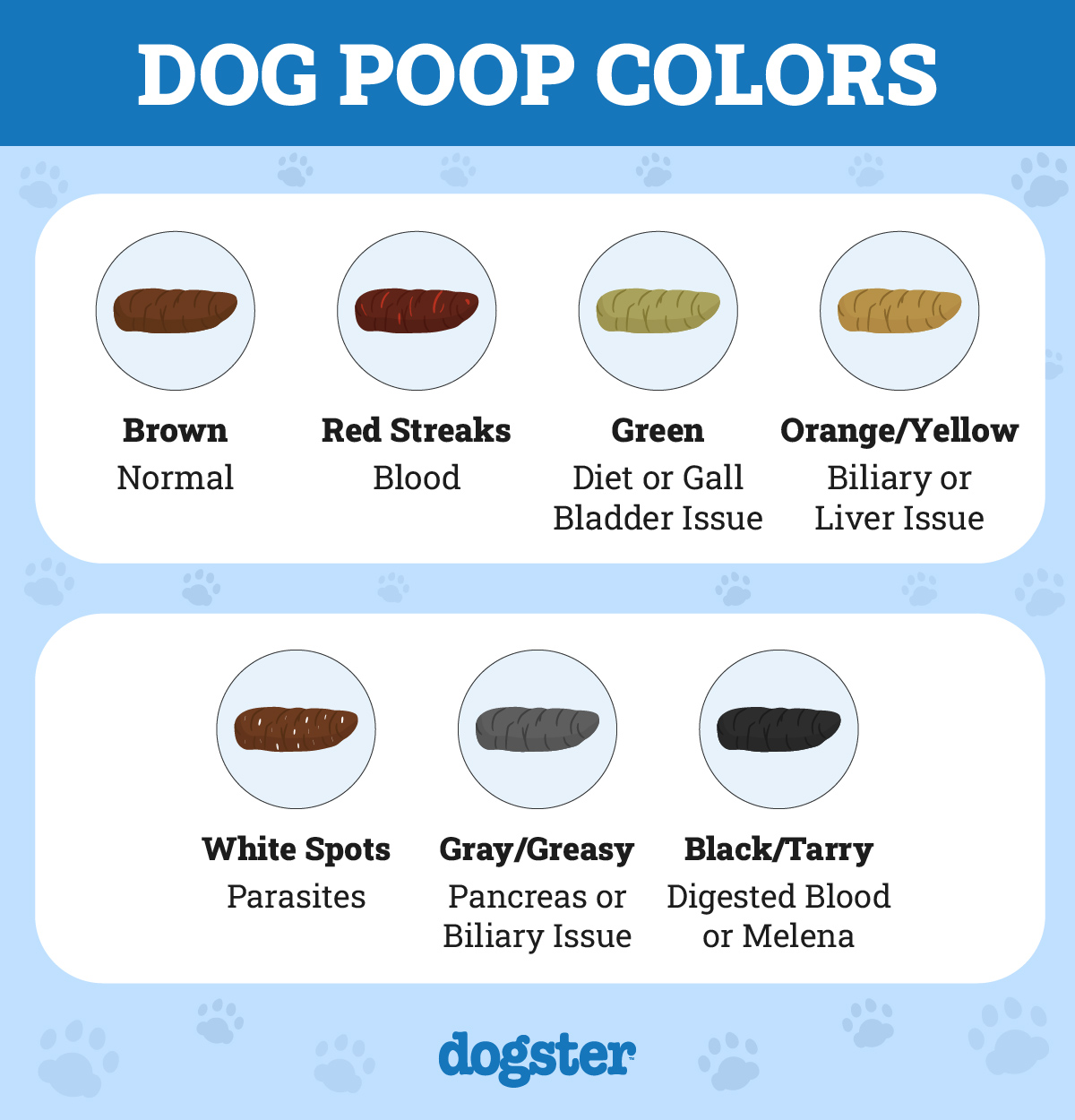
Is yellow dog poop contagious?
Some of the causes of yellow dog poop can be contagious. For example, infectious diseases caused by bacteria, viruses, or parasites can be passed on from one dog to another. Some are zoonotic, too, which means they can be passed on to humans as well. It is important to always wear gloves when handling your dog’s poop and wash your hands thoroughly afterward.

Conclusion
There are many reasons your dog’s poop can turn yellow. Some of these can be harmless, but others can be an indication of a serious health issue. It is important that dog owners monitor their dog’s poop.
If your dog’s poop changes from dark brown to yellow, or any other color, especially if your dog is showing other signs of being unwell, arrange for an appointment with your vet to have them checked out. If at all possible, it is very useful if you can bring in a sample of the poop, too.
Featured Image Credit: antoniodiaz, Shutterstock
